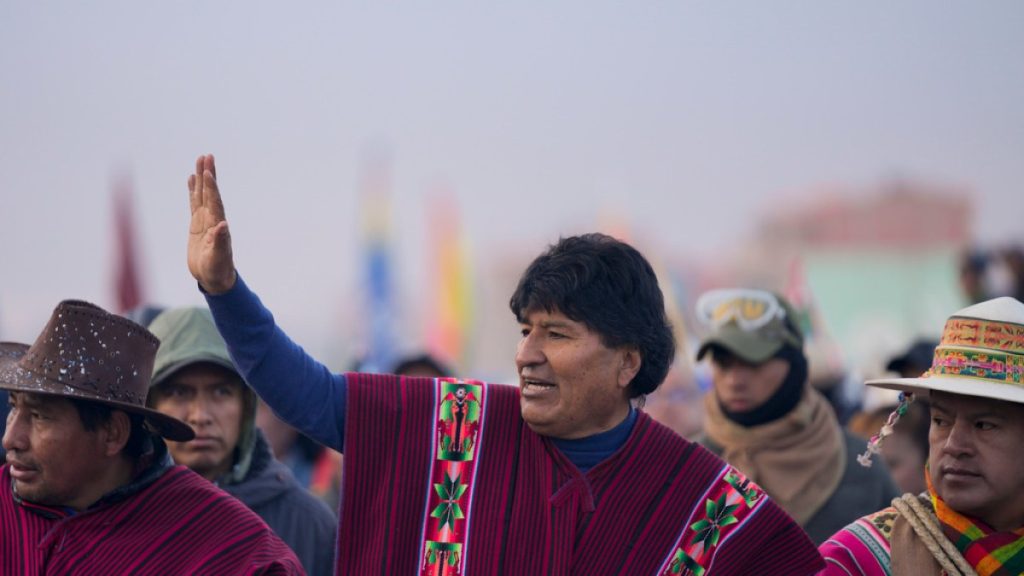Bolivia’s former President Evo Morales recently claimed that shots were fired at his vehicle in what he believes was an attempt to kill him, as political tensions within the ruling socialist party factions continue to rise. Morales, who served as the country’s first Indigenous president from 2006 to 2019, is currently involved in a power struggle with his successor Luis Arce, ahead of the 2025 presidential elections. The incident occurred as Morales was traveling on a road and two vehicles intercepted him, with one firing upon his car. Morales stated that a bullet passed just centimetres from his head, and he suspects that the attack was premeditated.
The former president shared a video on Facebook taken from inside his car, showing at least two bullet holes in the windshield and the driver appearing to be injured but still driving. Deputy Security Minister Roberto Rios confirmed that the government will investigate the alleged attack on Morales, emphasizing the importance of looking into any reports of violence against public figures. The incident took place amidst ongoing tensions in Bolivia, with Morales’ supporters blocking highways and security forces attempting to remove them, leading to disruptions in the supply of food and fuel nationwide, exacerbating the economic crisis that the country is already facing.
The government criticized Morales for destabilizing the country with the road blockades, accusing him of trying to disrupt democratic order. They also raised concerns about armed groups allied with Morales and warned of potential violence, citing injuries to police officers during attempts to dismantle the blockades. Morales has also been implicated in allegations of having relationships with minors. He was summoned by regional prosecutors to testify in the case but did not appear, leading to an arrest warrant being issued against him. Morales has vehemently denied the accusations, labeling the investigation as another lie and claiming to be a victim of judicial persecution orchestrated by the government.
The power struggle between Morales and Arce, who both belong to the Movement Toward Socialism (MAS) party, signals growing political infighting within the ruling party. As Bolivia grapples with challenges such as dwindling gas production, depleted foreign currency reserves, and rising inflation, the internal conflicts within the socialist factions are adding pressure on the government. The tensions between Morales and Arce have intensified over the past year, as they position themselves ahead of the upcoming presidential elections and vie for control within the party.
The incident involving the alleged attack on Morales underscores the volatile political climate in Bolivia, with concerns over potential violence and the impact on the country’s stability. Morales’ claims of being targeted for assassination highlight the high stakes involved in the power struggle within the ruling party, as factions vie for control and influence. The government’s response to the situation, including efforts to investigate the incident and address the broader issues of unrest and economic challenges, will be crucial in determining the future trajectory of political developments in Bolivia. As tensions continue to simmer, the country faces a critical juncture in navigating its path forward amidst internal strife and external pressures.


